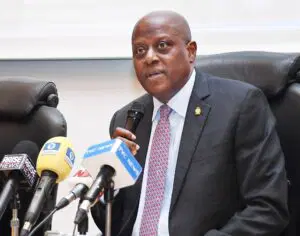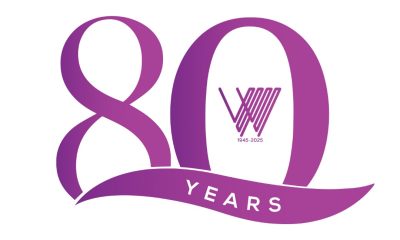Business
WEMA BANK UNVEILS NEW DIGITAL SOLUTION FOR COOPERATIVE SOCIETIES, COOPHUB

Wema Bank, Nigeria’s foremost innovative bank and pioneer of Africa’s first fully digital bank, ALAT, has officially launched CoopHub, a new digital solution for Cooperative Societies. The groundbreaking platform was unveiled at the launch ceremony held on May 10th, 2024, to commemorate the 79th anniversary of the Bank.
CoopHub, the first of its kind in the Nigerian banking industry, is a digital platform designed strategically to transform the way Cooperative Societies operate by providing tailored solutions that bridge the gaps in the traditional framework of Cooperative Societies. The unique platform insulates Cooperative Societies against prevalent struggles like manual recordkeeping, limited access to loans, poor communication, insecurity, and other restrictions, supporting them with the solutions needed to not only mitigate these problems but also operate with the utmost efficiency.
With CoopHub, leaders of Cooperative Societies can manage every aspect of their community’s operations from a simplified dashboard accessible on their phones, seamlessly managing their Cooperative Society’s finances, communication, member records, analytics and every other detail in real time and on the go. Members of the Cooperative Societies also enjoy increased access to loans, seamless contribution tracking, secure transactions, and easy communication with the leaders. Essentially, CoopHub helps Cooperative Societies maintain 100% transparency, reliability, and security, with the option of white labelling for a customised experience.
Disclosing the Bank’s motive for creating CoopHub, Wema Bank’s MD/CEO, Moruf Oseni, highlighted the Bank’s commitment to innovation and customer-centricity. “Cooperative Societies have many pain points. As a bank that is committed to empowering lives through innovation, we examined the end-to-end value chain of Cooperative Societies and launched CoopHub to provide solutions that address the pains and headaches in the Cooperative Society experience for both the leaders of these communities and the members. CoopHub is the future of Cooperative Societies and we have designed every detail to address the needs of every player in the Cooperative Society ecosystem and empower these communities for optimal productivity”, he said.
Delving into the unique features of CoopHub, Solomon Ayodele, Wema Bank’s Head of Innovation, added, “CoopHub is taking Cooperatives to an era where conflicts, stressful physical meetings, mistrust, inadequate capital, poor recordkeeping and inefficient governance are all a thing of the past. With a digitised database for all records, a dedicated User Management section for leaders to manage members efficiently, a transparent overview of contributions for both leaders and members, seamless communication framework that allows for easy planning of meetings and events, and a host of other unique features, CoopHub truly is the solution that every Cooperative Society needs. To promote community and financial security, CoopHub also offers a three-factor authentication system that ensures that every withdrawal from the Cooperative Society’s account is subject to an approval of three members of the Cooperative Society, including the Admin. We have been very intentional with CoopHub and I encourage every Cooperative Society to come on board and experience the future of Cooperative Societies through CoopHub”, Ayodele concluded.
CoopHub is now live and open to every Cooperative Society across the world. This futuristic solution is set to not only empower Nigerian lives with increased access to their needs through Cooperative Societies, but also revolutionise Cooperative Society operations for the best.
To onboard a Cooperative on CoopHub, simply register at https://coophub.alat.ng/
Business
We need strong, resilient banks to achieve $1trn economy — CBN

The Central Bank of Nigeria (CBN) has reaffirmed the need for strong, stable, and resilient banks to achieve President Bola Tinubu’s target of a $1 trillion economy by 2030.
Speaking at the 36th CBN Seminar for Finance Correspondents and Business Editors held in Abuja, Deputy Governor of Corporate Services, Ms. Emem Usoro, emphasised that ongoing efforts to recapitalise banks are a vital step in realising this goal. Represented by Acting Director of Corporate Communications, Mrs. Hakama Sidi-Ali, Usoro said bank recapitalisation will empower financial institutions to fund large-scale projects and compete globally.
“As we work towards building a one-trillion-dollar economy, we must consider the recapitalisation of our banks to finance and power the economy,” she said. “Banks must be strong enough to support development projects and effectively carry out financial intermediation.”
She added that Nigeria’s current GDP stands at around $250 billion, indicating a significant gap that would require strategic planning, consistent policy direction, and the full engagement of economic stakeholders.
The global financial architecture, she noted, has evolved, particularly since the Trump administration in the U.S., making it crucial for Nigerian banks to align with global opportunities and risks through responsive policies.
In his presentation, Director of Banking Supervision at the CBN, Dr. Olubukola Akinwumi, explained that the recapitalisation strategy now focuses on helping banks meet their Cash Reserve Requirement (CRR) obligations and participate in infrastructure financing.
He said, “A well-capitalised bank can support large transactions and benefit from government initiatives such as infrastructure concessions. Stronger banks can lend more, especially to priority sectors like agriculture, manufacturing, and SMEs, which are engines of growth.”
Akinwumi stressed that these sectors remain central to the government’s development plans, as reflected in the 2025 national budget, which prioritises education, health, agriculture, and infrastructure.
Adding an industry voice, UBA Managing Director, Mr. Oliver Alawuba, urged greater trust in Nigerian banks, suggesting that part of the country’s external reserves be managed locally to build confidence and boost economic growth.
“We manage the reserves of other African countries. Nigerian banks should be trusted with at least 10 to 20 percent of our own reserves,” he said.
However, Alawuba raised concerns about the feasibility of reaching the $1 trillion goal, citing Nigeria’s current annual growth rate of 3.8 percent—far below the 10 percent minimum required to meet the target by 2030.
He called for synergy between fiscal and monetary authorities to support the financial sector in driving sustainable economic transformation.
Business
Crude oil price crashes, puts 2025 FG revenue target in jeopardy

The price of Bonny Light, Nigeria’s premium crude oil grade, dropped by 5.09 percent to $59.62 per barrel on Wednesday, amid rising tensions from the ongoing global tariff war sparked by recent tariff hikes announced by the United States.
The downward trend in oil prices was further compounded by the Organisation of Petroleum Exporting Countries (OPEC) and its allies’ decision to raise oil production by 411,000 barrels per day starting in May 2025.
The price plunge comes as a major concern for Nigeria, whose N54.99 trillion 2025 national budget is predicated on a benchmark oil price of $75 per barrel and a production target of 2.06 million barrels per day (bpd). Current output, including condensates, stood at 1,671,953 bpd as of February 2025, according to the Nigerian Upstream Petroleum Regulatory Commission (NUPRC).
Speaking to Vanguard, Dr. Muda Yusuf, CEO of the Centre for the Promotion of Private Enterprise (CPPE), described the situation as a “serious problem.” He warned that the decline could severely impact government revenue and weaken the exchange rate.
“This poses a risk to our revenue and foreign exchange earnings. We all know the implications of a weak exchange rate on the economy,” Yusuf said.
Despite the broader economic risks, lower crude prices may offer relief at the pump for Nigerian consumers. Findings by Vanguard indicate that domestic petrol prices may fall as downstream operators prepare for a likely reduction in Premium Motor Spirit (PMS) prices.
Ehimen Joseph, Chairman of the Lagos State Chapter of the Petroleum Products Retail Outlet Owners Association of Nigeria (PETROAN), told Energy Vanguard, “This should be expected in a deregulated market. If the fall in crude oil prices persists, it would affect pricing along the entire value chain.”
Another industry source, who requested anonymity, said: “Everything is pointing towards a pump price reduction this week. One of the refineries has stopped issuing petrol tickets, anticipating a price review before Tuesday.”
Depot prices have already begun to reflect the trend. Data from petroleumprice.ng shows declines across major players: Mainland dropped from N920 to N918 per litre, A.Y.M from N920 to N919, and Ever from N920 to N918. Prudent, Eterna, and Soroman also saw slight reductions, with Eterna dropping from N900 to N897 per litre.
Meanwhile, OPEC has reaffirmed its commitment to monitoring the global oil market. A recent virtual meeting of eight OPEC+ countries—Saudi Arabia, Russia, Iraq, UAE, Kuwait, Kazakhstan, Algeria, and Oman—held on April 3, 2025, reviewed market conditions and reaffirmed output increases to stabilize global supply.
The situation continues to evolve, with both global market forces and domestic economic managers under pressure to adapt quickly to the unfolding realities.

















